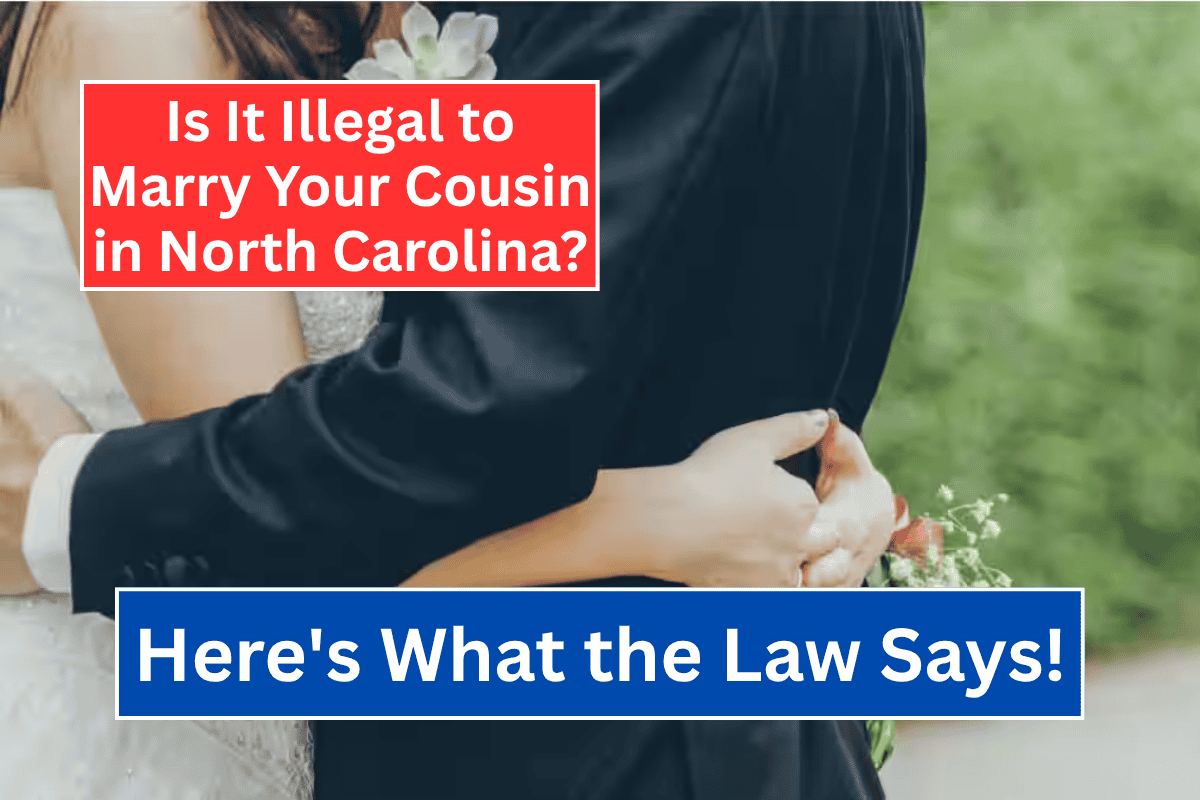In North Carolina, it is legal for first cousins to marry, which means that if you and your cousin wish to get married, you are allowed to do so under state law.
However, there are specific limitations when it comes to closer relationships, such as double first cousins, which we’ll dive into further in this article.
What Is a Double First Cousin?
Before diving into the details of cousin marriages, it’s essential to understand what a double first cousin is. This term refers to a rarer relationship between cousins, where both parents of one cousin are siblings of both parents of the other cousin.
In simpler terms, you would be considered a double first cousin if you and your partner are cousins through two sibling relationships on both sides of your family.
Double first cousins are much rarer than regular first cousins, and they are not allowed to marry in North Carolina. If you find yourself unsure whether you and your partner qualify as double first cousins, it’s crucial to clarify the family connections before proceeding with a marriage. This type of relationship is specifically prohibited, while first cousins are allowed to marry.
What You Need to Know About First Cousin Marriages in North Carolina
If you are a first cousin and wish to marry in North Carolina, here are some important points to keep in mind:
Marriage License Application: To get married, you must apply for a marriage license, which can be done at any county’s Register of Deeds office. You don’t have to be a resident of North Carolina to apply, but remember that some other states may not recognize your marriage if they prohibit first cousin unions.
Relationship Disclosure: In contrast to some states that require you to explicitly state your relationship to your partner on the marriage license form, North Carolina does not ask this question directly on the form. However, the clerk may ask if you are related, and if so, you can simply confirm that you are first cousins (or further out).
Legal Restrictions: North Carolina law specifically mentions first cousins in its marriage laws, making it clear that marriages between first cousins are permitted. The state does not allow marriages between individuals who are closer than first cousins, such as siblings or half-siblings. However, it also notes that half-siblings are not allowed to marry.
Who Can’t Get Married: North Carolina’s marriage laws are detailed and somewhat complex, but in simple terms, they prohibit marriages between individuals who are closer than first cousins. Relationships such as aunt-nephew, uncle-niece, and siblings are banned.
History of Cousin Marriages in North Carolina
Historically, cousin marriages have been more common in North Carolina than in many other states. In the 19th century, it was reported that nearly 10% of marriages among planters in North Carolina were between first or second cousins. This tradition may explain why the state has allowed cousin marriages for such a long time.
However, double first cousins were prohibited in 1946, likely due to concerns about the genetic risks of closer familial relationships. Since then, this restriction has remained in place, with first cousins still allowed to marry.
Do People Travel to North Carolina to Get Married?
Because neighboring states like Georgia, Tennessee, Virginia, and South Carolina allow first cousin marriages, North Carolina sees little to no traffic from out-of-state couples seeking to marry. Unlike some states where there are concerns about an influx of out-of-state couples coming to marry, North Carolina is more relaxed on this issue, likely because its neighbors already permit cousin marriages.
Roman Catholic Marriages in North Carolina
For couples wishing to marry in a Roman Catholic church, there are additional considerations. Historically, the Catholic Church has been opposed to first cousin marriages. However, the church has relaxed its stance over time, and with proper permission, couples can marry in a Catholic church.
This process is known as a dispensation, where special permission is granted by church authorities to allow the marriage to take place in a religious ceremony.
If you are planning a Catholic wedding in North Carolina, you will need to seek a dispensation to marry your first cousin in the church. Second cousins, on the other hand, do not need special permission from the church to marry.
In North Carolina, it is legal for first cousins to marry, but double first cousins are prohibited. As long as you and your partner are first cousins and not closer than that, you are allowed to proceed with your marriage under state law.
It’s also important to be aware that while North Carolina allows first cousin marriages, other states may not, and if you’re planning a religious wedding, you may need special permission from the Catholic Church.
Understanding the marriage laws in North Carolina can help ensure that your plans align with both legal and religious requirements. For those seeking further clarification or legal assistance, it may be helpful to consult with a family law attorney.












